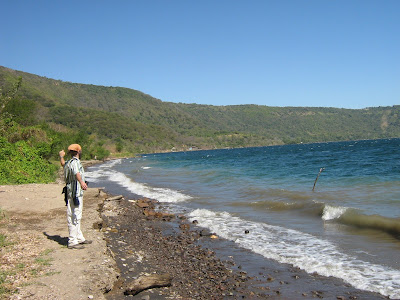Nicaragua is a poor country with lots of natural resources at risk in a rapidly changing socio-economic environment. Whole forests can disappear overnight, lakes can go from pristine to polluted before anyone notices, and species may go extinct without ever getting a name in the first place. FUNDECI/GAIA has developed Conservation Science Internships to promote the protection of Nicaragua's delicate and wonderful natural world.
Many of our conservation science interns are students of biology or environmental science, but not all of them. If you would like to participate as a conservation science intern, you don't need to be planning a career in biology. In fact, we can use people of many types of skills which can apply to our projects, ranging from science students to people dedicated to education, computers, construction, and even journalism. There are many ways in which someone can contribute.
Three of our Conservation Science Interns from Holland produced a video about their projects. We hope you like it. Please take a look!
Our focus is on protecting the natural resources of Laguna de Apoyo Nature Reserve. This means a lot more than just counting the monkeys and birds. It also means working with the people of the area. As a result, interns with diverse areas of professional development can be involved, all coinciding in a love of wild nature and a desire to help poor, rural people live more prosperous lives, sustainably.
 |
| Our Conservation Science Interns may study some aspect of the biodiversity in the lake or the terrestrial system of the Laguna de Apoyo Nature Reserve. |
 |
| Data gathered in field work is later used for purposes of advancing scientific knowledge and protecting the wild ecosystems found in Laguna de Apoyo Nature Reserve and other natural areas. |
 |
| Nicaraguans and foreigners will work closely on all projects. |
Our current projects for interns include: care and promotion of rescue animals; organization and outreach for conservation and environmental education activities; and wildlife conservation and biodiversity research.
 |
| Click on the "escudo" to contact us. |


No comments:
Post a Comment